‘The Lord Of The Rings’ Screenwriter Philippa Boyens Explains How Sam And Frodo Have A “Real Genuine Friendship” Without Any Political And Sexual Implication

The Lord of the Rings film trilogy screenwriter Philippa Boyens made it abundantly clear that there was no intention to depict Sam and Frodo as Sodomites as many woke activists are attempting to do.
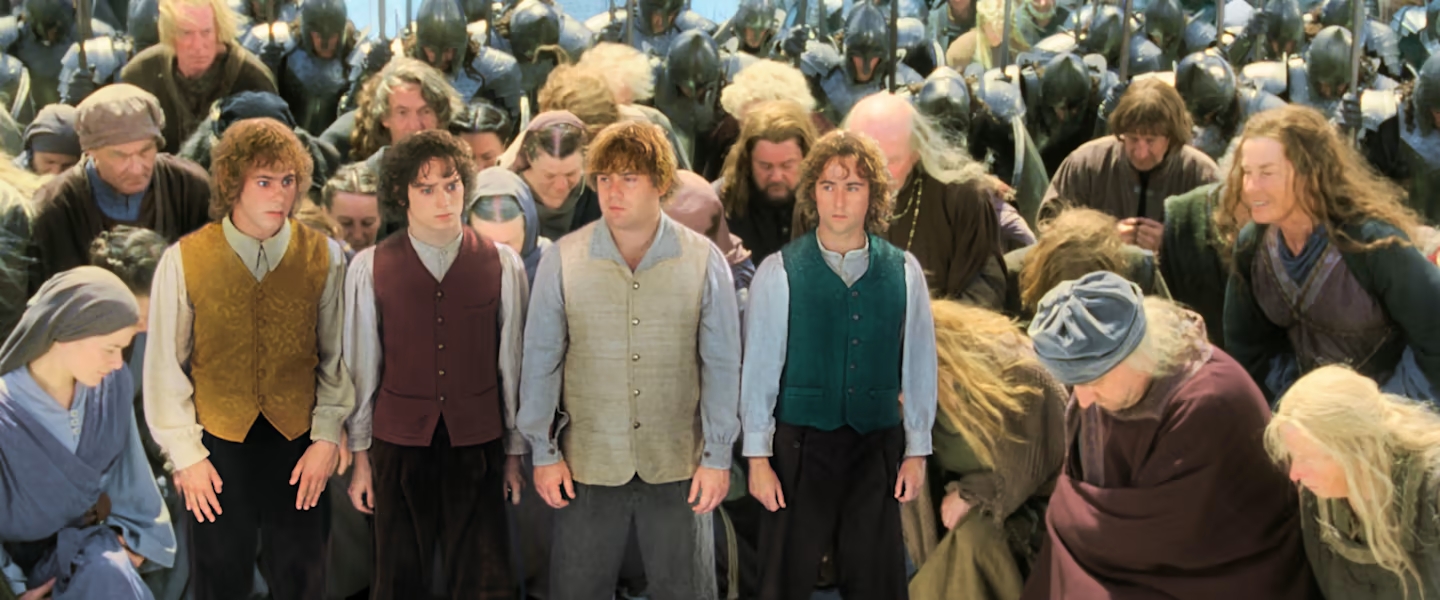
Dominic Monaghan as Merry, Elijah Wood as Frodo, Sean Astin as Samwise Gamgee, and Billy Boyd as Pippin in The Lord of the Rings: The Return of the King Extended Edition (2003), Warner Bros. Pictures
In an interview conducted back in 2003 during the promotion of The Lord of the Rings: The Return of the King, Boyens was asked how the film depicts real sentiment between Sam and Frodo rather than manufactured emotion.
She answered, “I think what I like about that is that Sam has… I think it is an understanding, a shared understanding, which is why we deliberately put in the beginning of the movie Sam’s belief that there would be a return journey. It was very important. You didn’t want to palm it. You just wanted to slip it in there. We didn’t want to do a big, huge setup. Just getting them there that Sam has an expectation that there will be a return journey.”
Boyens continued, “In that, I think that little scene where he says, ‘I don’t think there’s going to be a return journey.’ And Frodo looks at him. Something passes between them. Which Frodo actually knew already, which is, there was no going back. They weren’t going to survive this. And that’s how they go forward, that’s how they proceed. And that’s part of their stoicism and heroism as characters.”
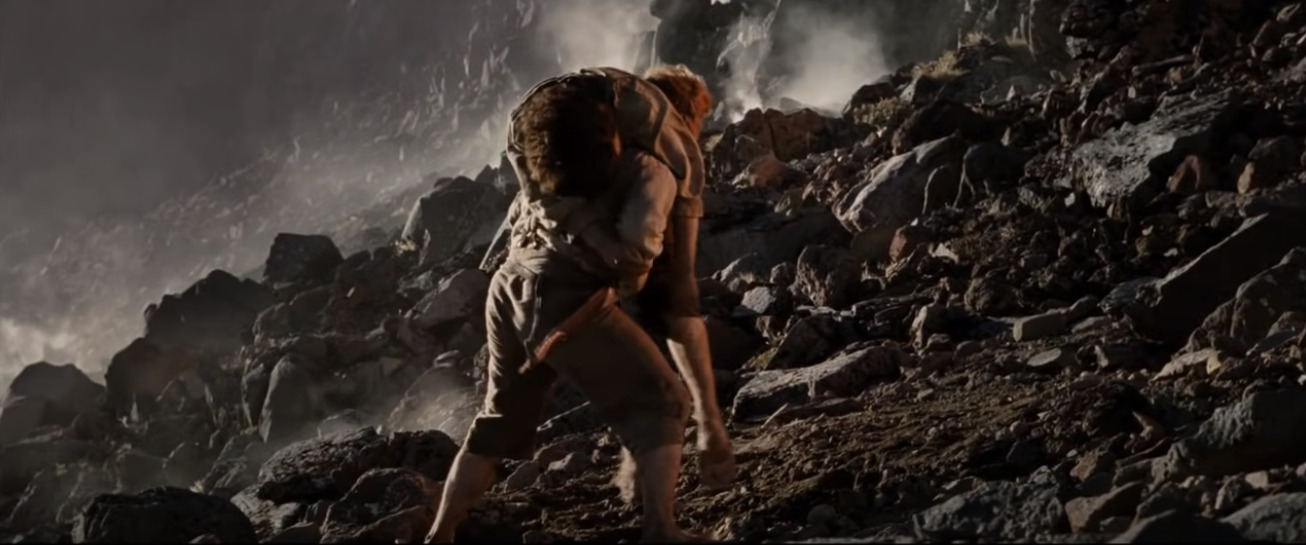
Sean Astin as Samwise Gamgee and Elijah Wood as Frodo Baggins in The Lord of the Rings: The Return of the King
“And the only reason they can do that is because they are together,” she asserted. “And I think that’s a lovely bond. And it’s lovely to be able to do that between two male characters without any other kind of political implication or sexual implication. It’s just the truth of a friendship, a real genuine friendship. And it’s quite clean.”
“And I think it plays to the experience of [J.R.R. Tolkien] who obviously went — and even though he hated the allegory of the World Wars, I think you can feel this was written by somebody who went through something like the trenches in World War I,” she concluded.
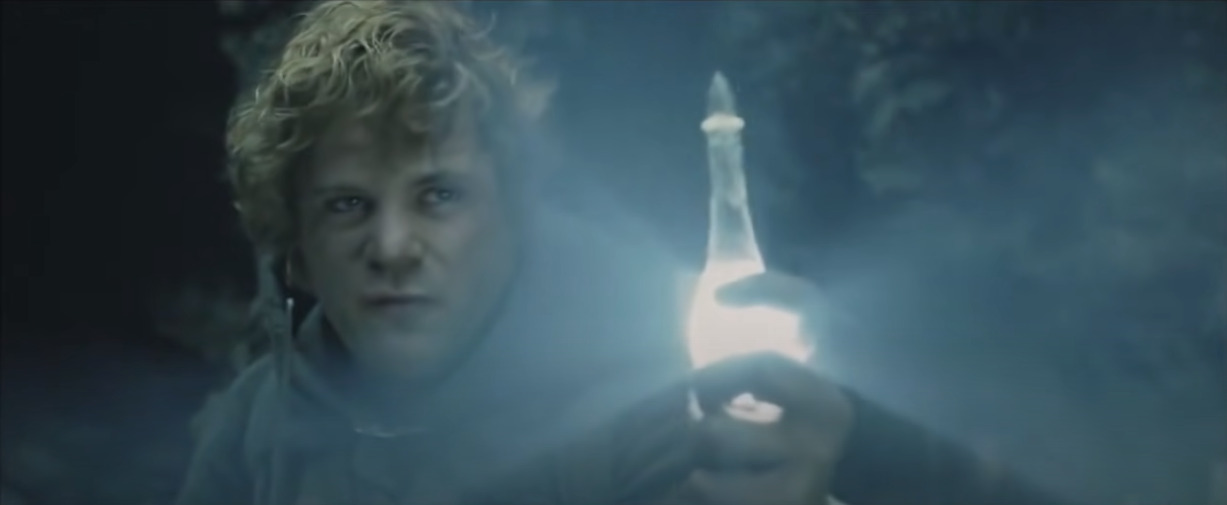
Sean Astin as Samwise Gamgee in The Lord of the Rings: The Return of the King (2003), New Line Cinema
Interestingly, Tolkien informed biographer Humphrey Carpenter back in 1977 that Samwise was indeed inspired by his comrades in the trenches of World War I.
Carpenter quoted Tolkien in J.R.R. Tolkien: A Biography, “My ‘Sam Gamgee’ is indeed a reflexion of the English soldier, of the privates and batmen I knew in the 1914 war, and recognised as so far superior to myself.”
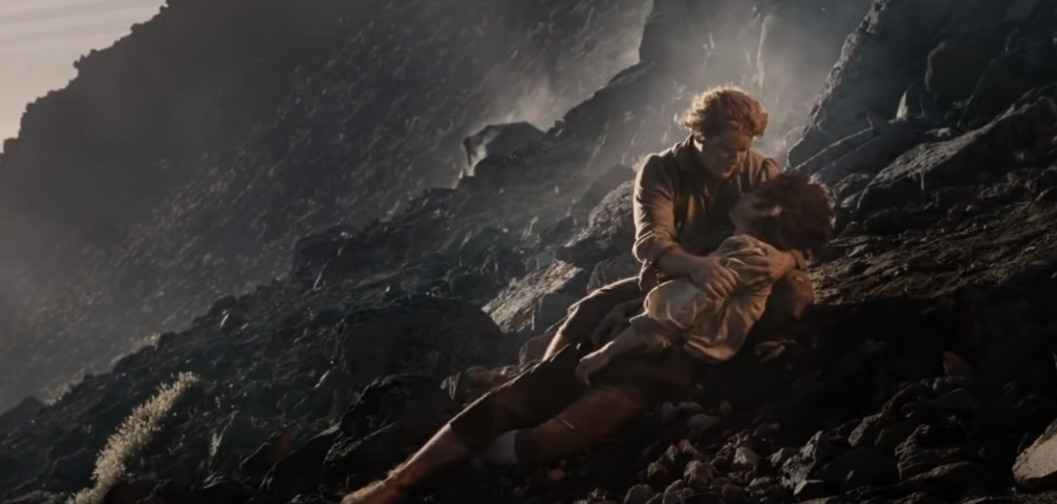
Sean Astin as Samwise Gamgee and Elijah Wood as Frodo Baggins in The Lord of the Rings: The Return of the King
Tolkien reiterated these comments in a letter written to H. Cotton Minchin dated April 16, 1956.
He wrote, “My ‘Samwise’ is indeed (as you note) largely a reflexion of the English soldier—grafted on the village-boys of early days, the memory of the privates and my batmen that I knew in the 1914 War, and recognized as so far superior to myself.”
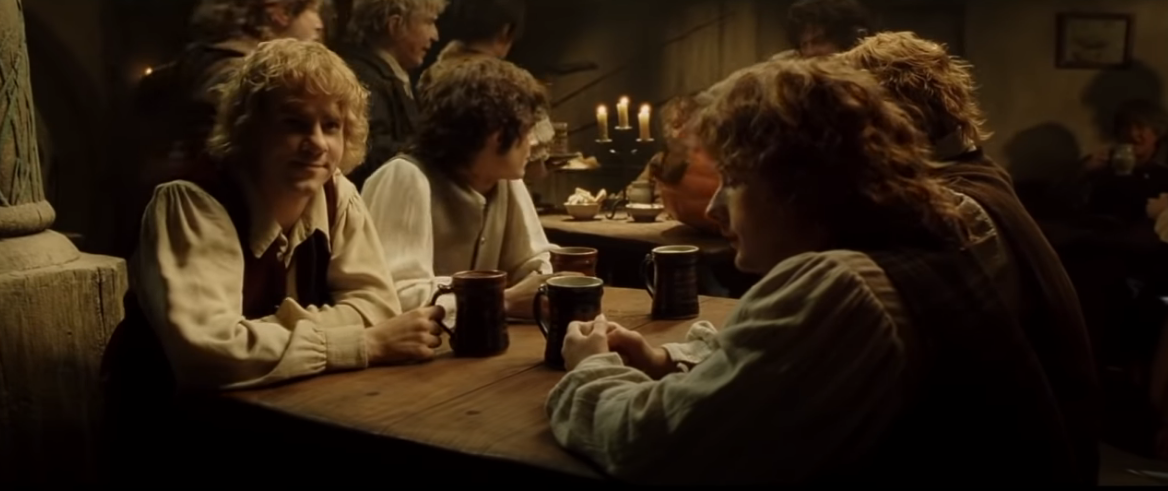
Dominic Monaghan as Merry, Elijah Wood as Frodo, Sean Astin as Sam, and Billy Boyd as Pippin in The Lord of the Rings: The Return of the King (2003), New Line Cinema
Tolkien scholar John Garth also described the relationship between Sam and Frodo, “The relationship between Frodo and Sam closely reflects the hierarchy of an officer and his servant [in the First World War]. Officers had a university education and a middle-class background. Working-class men stayed at the rank of private or at best sergeant.”
He detailed, “A social gulf divides the literate, leisured Frodo from his former gardener, now responsible for wake-up calls, cooking and packing. British masculine reticence and class-consciousness problematised the communications between batmen and officers, the odd couples of the battlefield. Tolkien maps the gradual breakdown of restraint [through prolonged peril] until Sam can take Frodo in his arms and call him ‘Mr Frodo, my dear.’”
“By then, the hierarchy is largely inverted. Frodo moves towards a childlike dependency: he presents the problems, Sam the solutions,” he asserts. “In the First World War this process was far from atypical. Officers were given commissions for class reasons, not because they were experienced soldiers or leaders; whereas the privates and batmen often had the age, experience, and wisdom their official superiors lacked.”
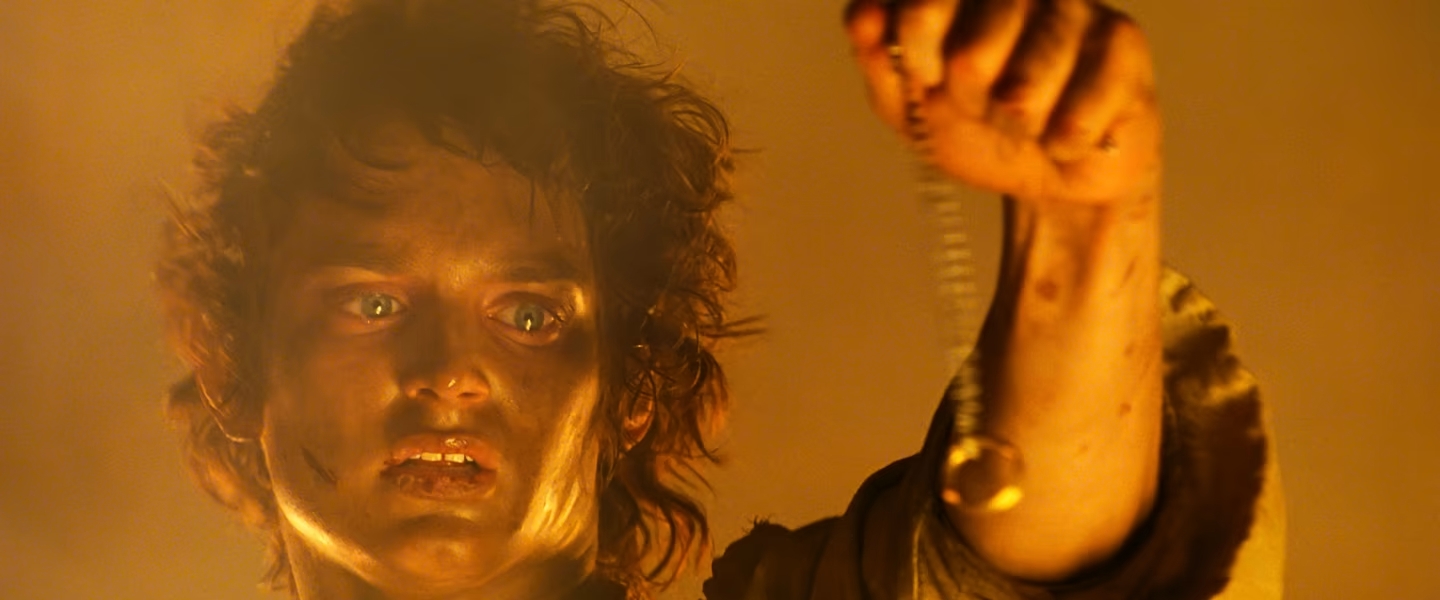
Elijah Wood as Frodo in The Lord of the Rings: The Return of the King Extended Edition (2003), Warner Bros. Pictures
Garth goes on to cite C.S. Lewis’ own personal experience, “C.S. Lewis, for example, had played Frodo to his sergeant’s Sam. ‘I came to pity and reverence the ordinary man: particularly dear Sergeant Ayres,’ Lewis recalled. ‘I was a futile officer (they gave commissions too easily then), a puppet moved about by him, and he turned this ridiculous and painful relation into something beautiful, became to me almost like a father.’”
“With the help of Sam’s homely chatter, Frodo even laughs on the edge of Mordor. ‘Such a sound had not been heard in those places since Sauron came to Middle-earth,’ Tolkien notes. This is the kind of laughter that war correspondent Philip Gibbs [in Now It Can Be Told] believed acted as ‘an escape from terror, a liberation of the soul by mental explosion, from the prison walls of despair and brooding’ on the Western Front,” he concludes.
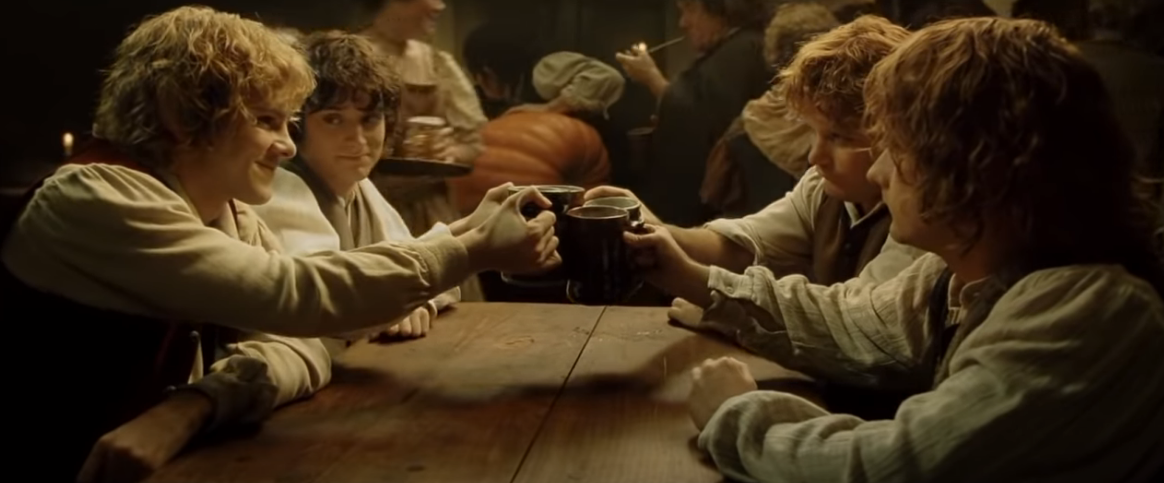
Dominic Monaghan as Merry, Elijah Wood as Frodo, Sean Astin as Sam, and Billy Boyd as Pippin in The Lord of the Rings: The Return of the King (2003), New Line Cinema
Clearly, Sam and Frodo’s friendship as characterized and portrayed by Tolkien in The Lord of the Rings was inspired by his own experience with his batmen in the trenches of World War I.
It’s even more than just friendship, it’s total trust in another person. It’s true love, not in the sexual way, but as St. Thomas Aquinas defined it: “To love is to will the good of the other.”
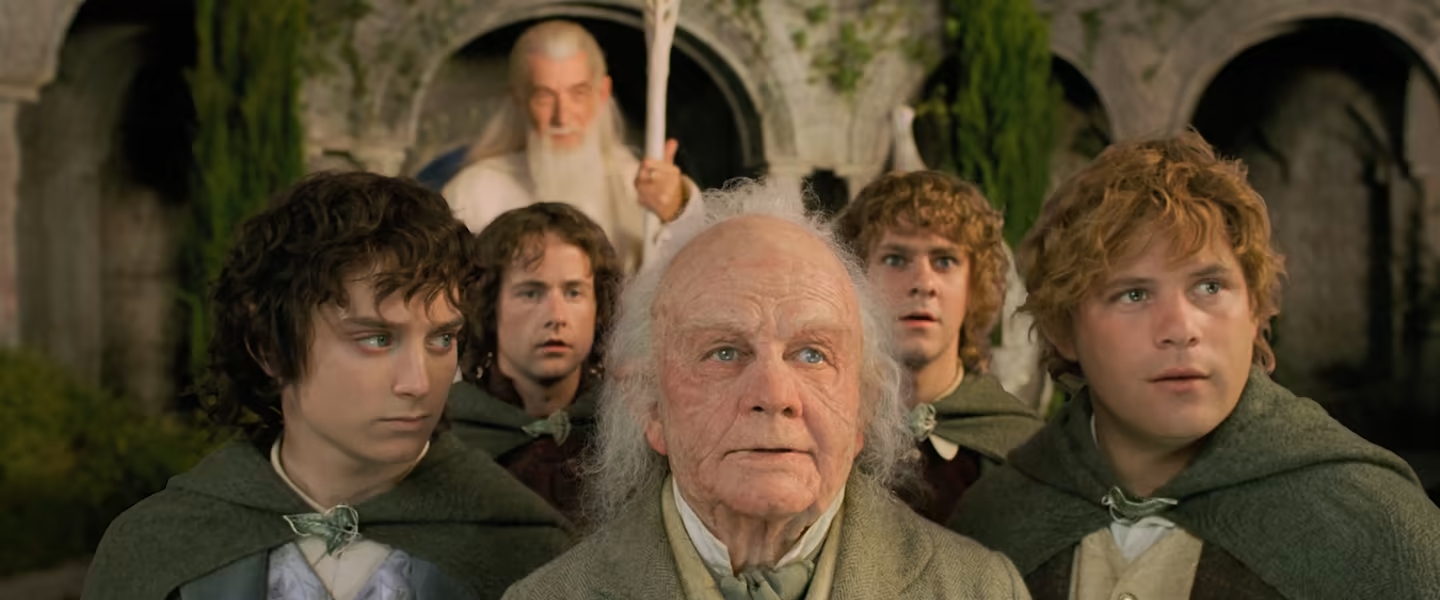
Elijah Wood as Frodo, Ian McKellen as Gandalf, Billy Boyd as Pippin, Ian Holm as Bilbo, Dominic Monaghan as Merry, and Sean Astin as Samwise Gamgee in The Lord of the Rings: The Return of the King Extended Edition (2003), Warner Bros. Pictures
What do you make of Boyens’ commentary regarding the relationship between Sam and Frodo and how it was depicted in The Lord of the Rings: The Return of the King?
NEXT: Sam And Frodo Are Not Homosexuals In The Lord Of The Rings, J.R.R. Tolkien Made That Quite Clear
More About:Movies
